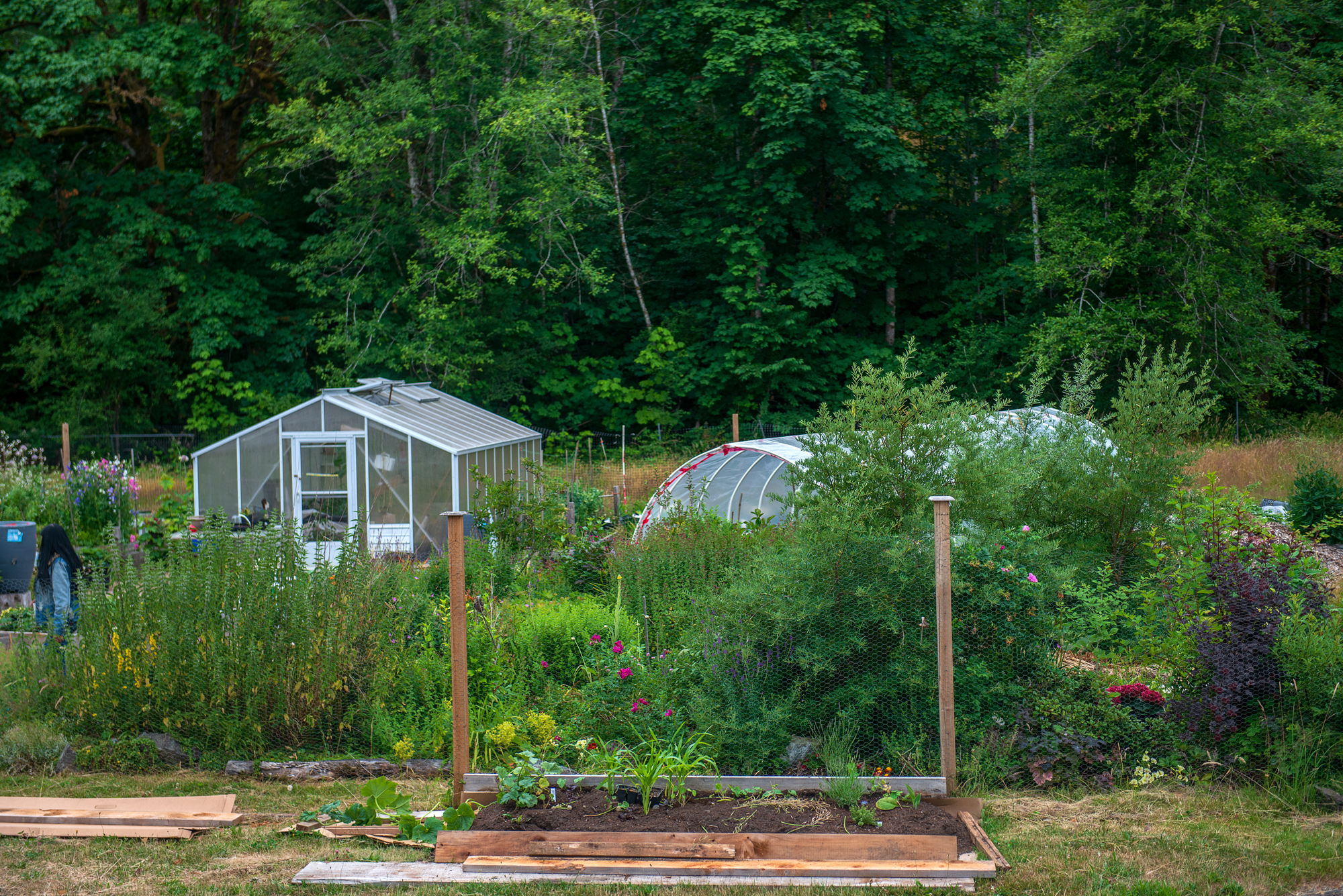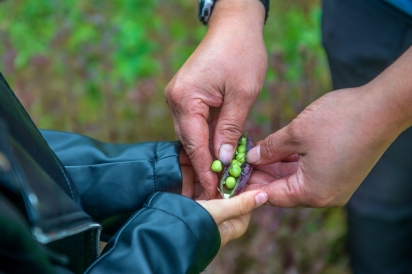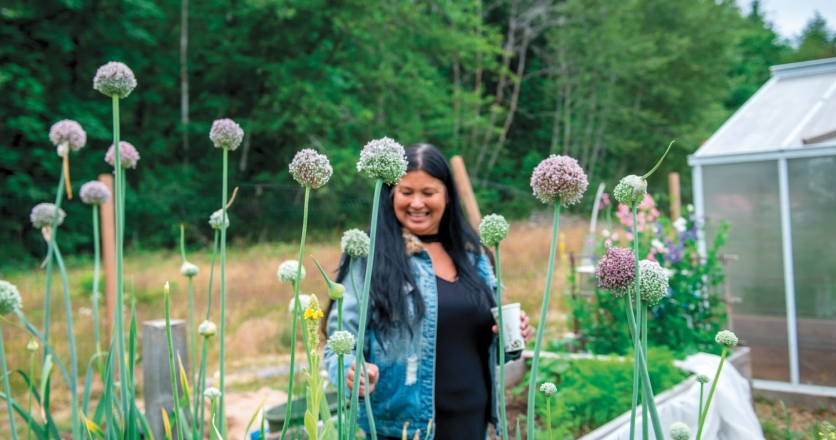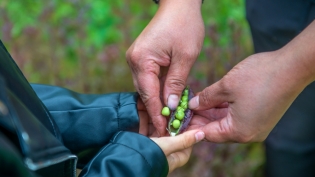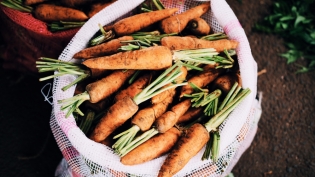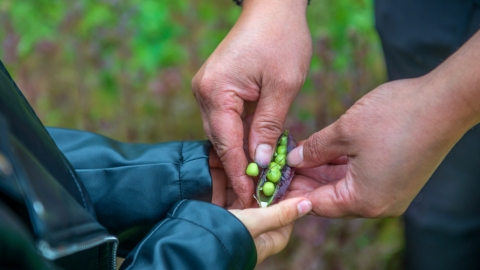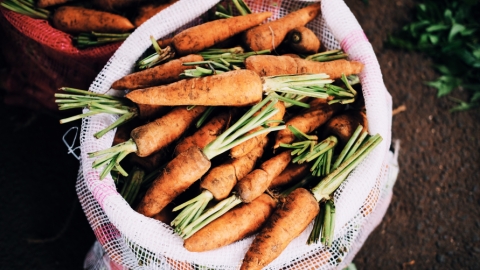Planting The Seeds Of Change
The dirt where the Port Alberni Residential School used to stand was hard, dead clay. It was so hard you couldn’t even penetrate it with a shovel, no matter how hard you pushed your feet on it. Yet this was where Gail Gus, the community coordinator of the Tseshaht First Nation decided to build a garden. Nobody wanted to eat anything from it. There were probably bodies buried there, they said; so many children were never found.
“The earth needs to heal, and we need to heal, and that’s why I chose that place….This is our land and this land needs to heal as much as we do.”
At first there was only kale in the beds. It grew a metre high. In order to get people to use the garden, Gail started a Smoothies and Movie Night featuring vegetables and fruit from the garden. One smoothie was purple; the other, green. When the children avoided the green smoothies (“because it’s gross”) Gail revealed the purple smoothie contained kale mixed with blueberries. Once the children began eating food from the garden, the community slowly opened up to it. Today, the thriving garden is where people go to pick a salad for dinner and where kids will load wagons with tomatoes to deliver to the community.
This is partly a story about healing the land, and healing a community. But it also part of a larger story around food security.
In a nutshell, the goal of food security initiatives is to provide as many people as possible with not only a reliable source of food, but food that is nutritious and healthy. Food is something you don’t just buy once—it’s a continual flow of resources and it’s linked with the global marketplace. With the global economy and the growing threat of global warming increasingly affecting daily life, many people are reconsidering what it means for food to be ‘secure’.
For example, are those out-of-season Florida oranges—so expensive to transport—really necessary? Well, maybe. When Gail Gus was growing up, her only vegetable was creamed corn from a tin. Some people can’t rely on locally produced food because it’s just too expensive. Or, they simply don’t have access. It’s easy to find food in a city where there are many different grocery stores and farm markets, but in more rural communities there may be only one store that stocks organic produce. And then there’s the issue of people who may be trapped by disability or circumstance and are simply unable to access a reliable source of healthy food. Tellingly, one of the first adults to use Gus’s community garden was someone with cancer. They couldn’t afford fresh vegetables, but needed a healthy diet once they started chemo.
Maurita Prato, executive director of LUSH Valley Food Action Society, a nonprofit focused on food security in the Comox Valley since 2000, says the issue is “much more around income and poverty than it is around choice. And when people have the choice and access to healthy food, they tend to go for the healthy food.” To that end, LUSH Valley’s Share the Harvest program helps distribute food from local farms and fruit trees to low-income/at-risk communities in the area. When the project started, Prato recalls, all the food disappeared in just a few hours. Then people started sharing recipes with each other. Over time, organizers noticed that people actually started to look healthier.
“People are so disconnected from food,” says Matthew Kemshaw, executive director of LifeCycles Project Society, a Victoria-based program that aims to reconnect people ‘with the food they eat and the land it comes from.’ “A lot of people don’t know how a carrot grows anymore. We’ve lost a lot of knowledge around how to grow and prepare food and it’s been outsourced and removed from our societal consciousness. There’s a cultural amnesia surrounding food.”
But when people authentically connect over the production and consumption of food, good things happen. Groups such as LifeCycles and LUSH Valley aim to foster those opportunities for connection.
LifeCycles partners with School District 61 in Victoria to offer professional development resources for teachers to support them (and their students) in developing community gardens at schools. They also support a high school program where students who are interested in working in the food sector gain credit by caring for the gardens at Reynolds Secondary School in Saanich over the summer. Up-Island, LUSH Valley organizes food-focused community workshops on a variety of themes. For example, one workshop brings fathers together with their children to learn how to cook healthy meals. There are also workshops in canning and preserving and baking, as well as how to grow your own food.
On a broader scale, the Island Food Caring initiative is a collection of grocers including Country Grocer, Fairway Markets, Red Barn Market, The Root Cellar and Thrifty Foods, all working together to reduce food waste by redistributing unsold fresh food to groups such as The Mustard Seed Street Church and the Aboriginal Coalition to End Homelessness. As well, they encourage their staff to adopt the attitude that though a fruit or vegetable may look less than perfect, it is still edible and nutritious.
It’s all good and important work—but there’s still more to be done at levels both personal and political (see sidebar). Going forward, Vancouver Island has the means—including tight communities, established networks and a gentle climate—to be a model for food security and sustainability practices. The question is, does it have the will? As Gail Gus’s garden demonstrates: all it takes is one person to plant the seed of change.
Learn more about food security and sustainability issues and initiatives on Vancouver Island:
- islandfoodhubs.ca/edible-island-map.html (Check out the Action pages to learn how you can advance the cause of food security to benefit your community.).
- bcfoodsecuritygateway.ca
- eatwestcoast.ca
- lushvalley.org
- lifecyclesproject.ca


